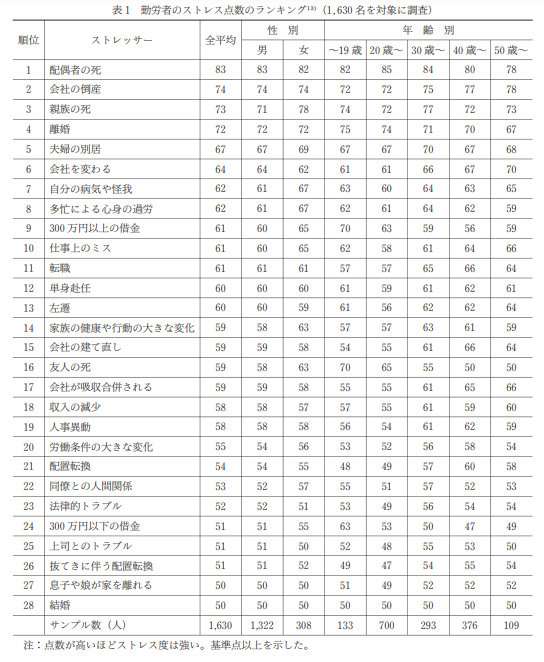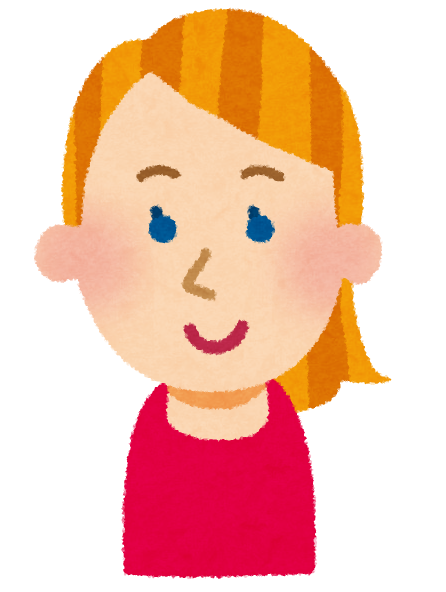ライフハックとしてではなく、英語学習にも極めて有用なのが、著名人が10分程度のプレゼンを行うTEDです。
TED Talksとは、あらゆる分野のエキスパートたちによるプレゼンテーションを無料で視聴できる動画配信サービスのことです。10年ほど前にサービスが開始されてから、政治、心理学、経済、日常生活などの幅広いコンテンツが視聴できることから人気を集めています。
RareJob English Lab
TEDは4000を超える膨大な数の動画があります。しかし慣れないうちは、動画の探し方や視聴のコツが分かりませんよね。この記事では、数多くのTEDを見てきた管理人(塩@saltandshio)が、心を揺さぶられたトークをあらすじと一緒にご紹介します。
ビジネス英会話を効率よく身につけたい方におすすめスクール
シェーン英会話
シェーンは1977年の創業以来、ネイティブ講師が英語を英語で教える「直接教授法」を採用しています。首都圏におけるスクール拠点数は、ネイティブ講師の英会話スクールでNo.1。駅から近いスクールが多いので通いやすく時間を有効に使えます。
スピークバディ パーソナルコーチング
1日1時間の短期集中トレーニングで、あなたの英語力向上をコーチが全力でサポートします。あなたの英語の世界が、劇的に変わります。
ノラ・マキナニー:悲しみはそこから「次へ進む」ものではなく、共に歩んでいくもの
作家でありポッドキャスターでもあるノラ・マキナニーは、悲しくも愉快なトークで、自らの辛い経験から学んだ生と死に関する知恵を話します。現実的に考えて、いつかは私たち全員に影響することとなるものに対する彼女の率直なアプローチは、心が張り裂けそうな気持ちにさせられると同時に解放的でもあります。非常に力強く、彼女は悲しみに対峙する方法を変えるように促します。 「悲しんでいる人も、またいつか笑ったり微笑んだりする時が来ます。前へ進む時が来るのです。でもそれは悲しみを忘れて次へ進んだということではないのです」と、彼女は言います(約15分)。
[PR]無料体験レッスン実施中!全国208校、創業40年の老舗英会話スクール【シェーン英会話】全員が 100% 死ぬのがこの世界
誰しも身近な人の死を経験することがあります。特に配偶者の死は、その人の人生の中で最も強いストレスをもたらすといわれており、ストレスランキングでも一位になっています。

ノラ・マキナニーは、2014年に二度目の流産をし、父親を亡くし、夫も亡くしました。控えめに言ってもかなり辛い一年だったといえるでしょう。そんな辛い経験をしたノラ・マキナニーに対して、周りの人たちは一様に「想像できない」と慰めの言葉をかけました。しかし、この言葉に対してノラ・マキナニーは異論を唱えます。
けれど、想像できると思います。みなさんにもできるはずですし、想像すべきです。なぜなら、いつかは皆さんにも起きることだからです。
But I do think you can. I think you can. And I think that you should because, someday, it’s going to happen to you.
作家の養老孟司さんも、著書である『バカの壁』で「そもそも人間の死亡率は100%」と書かれてある通り、私たちは間違いなく100年後には存在していません。ノラ・マキナニーは、一年間に三人もの大切な人を亡くすという経験をしたことで、死や死別について話すことを仕事にしました。そうしていま、彼女は「多くの人にとって扱いにくい事柄を接しやすくしたい」という理念のもと、PodcastやHot Young Widows Clubという活動をしています。
[PR]まずは無料カウンセリング”続けるため”の オンライン英語コーチ「スピークバディ パーソナルコーチング」大切な人を亡くした人は悲しいのか
Hot Young Widows Clubでは、男性、女性、同性愛者、異性愛者、既婚、事実婚などの人々が、自身の失った人について話をしたり、自分の周囲の人々がまだ聞く心の準備ができていないことや、耳にしたくないことを話したりしています。
そんなノラ・マキナニーが行っている活動には、いったいどのような意味があり、周りにどのような影響を与えるのでしょうか。
私たちがグループでする会話の多くは参加者の内に留めておくものですが、私たちが話す事柄の中には、グループの外の世界―悲しみと隣り合っていながら、まだ悲しみに直面していない世界にとても役に立つこともあるのです。
Most of the conversations that we have in the group can and will just stay amongst ourselves, but there are things that we talk about that the rest of the world — the world that is grief-adjacent but not yet grief-stricken — could really benefit from hearing.
そのひとつが、ノラ・マキナニーがグループの中にいる様々な人に投げかけたある質問です。彼女は、グループのメンバーに「人に言われた言葉のなかで、一番嫌な言葉はなんだったか」という質問を投げかけました。すると、トップに上げられたのが「次へ進む」だったのです。
[PR]しちだの魔法ペンなら35日でバイリンガルに!楽天4部門1位の英会話!<七田式>人に言われて一番嫌だった言葉は「次へ進む」
ノラ・マキナニーは夫を亡くしたあと、別の男性と再婚して新しい暮らしを送っています。しかし、そんな彼女もまた「次へ進む」という言葉が嫌いでした。
本当に素晴らしい人生なのですが、私はまだ「次に進んで」はいません。次に進んではいませんし、この言葉がとても嫌いで他の人が嫌がる理由がわかります。
なぜなら、この言葉はアーロンの人生と死と愛情は瞬間に過ぎず、後ろに置いていくことができるものでそうすべきだと示唆しているからです。
By any measure, life is really, really good, but I haven’t “moved on.” I haven’t moved on, and I hate that phrase so much, and I understand why other people do.
Because what it says is that Aaron’s life and death and love are just moments that I can leave behind me — and that I probably should.
その証拠に、ノラ・マキナニーは現在進行形で亡くなった夫であるアーロンのことを話します。なぜなら彼女にとってアーロンは過去の人ではなく、いまもここにいる人だからです。
国立がん研究センター中央病院で、家族ケア外来を担当する加藤雅志医師も、「「もっと前向きに」とか「外に出なきゃ」「こう考えたらいいと思う」などと安易な説得や価値観を押しつけると、わかってもらえないと、誰にも話さなくなってしまいます」と注意を促しています。
答えがでない難しい話題でも、「しょうがないよ」「いつまでもくよくよするな」と話を受け止めずに逃げたり、無理やり解決しようとしたりせず、避けずに向き合い、悲しみを理解する、ということが大切です。また「もっと前向きに」とか「外に出なきゃ」「こう考えたらいいと思う」などと安易な説得や価値観を押しつけると、わかってもらえないと、誰にも話さなくなってしまいます。あくまで遺族の希望を尊重してください。
死別の衝撃、遺族を襲う嵐のような感情 どう向き合う? / 朝日新聞デジタルより
遺族の中には、その人の『存在』が今なおずっと残っています。それは、信心深いとはまた違います。たとえいなくなったとしても、亡くなった人の存在は消せるものではないのです。
[PR]知って得する、知らないと損をする!すぐに役立つ相手に合った「伝え方」のコツ!大切な人はいないけれど「いる」
病気で前夫のアーロンを亡くし、現在の夫であるマシューと出会ったとき、ノラ・マキナニーは周りにいる人々が安堵の溜息をつくのが聞こえました。周りの人々は、揃ってノラ・マキナニーが「次に進んだ」ことを祝福していたのです。
しかし、ノラ・マキナニーは違いました。マシューに心を開いたあと、ノラ・マキナニーは「過去もいまも未来もアーロンの事を考えてもいいか」と自問しました。そして彼女が導き出した答えは「考えていたい」でした。
すると突然2つの物語が一気に広がりました。マシューと恋に落ちたことで、アーロンの死で失ったものの大きさを心から実感することができたのです。
それと同じくらい重要なのは、アーロンへの愛、アーロンへの悲しみ、そしてマシューへの愛が、対立する力ではないことに気づかせてくれたことです。同じ糸をつないだだけなのです。同じものなのです。
And all of a sudden, those two plots were unfurling at once, and falling in love with Matthew really helped me realize the enormity of what I lost when Aaron died.
And just as importantly, it helped me realize that my love for Aaron and my grief for Aaron, and my love for Matthew, are not opposing forces. They are just strands to the same thread. They’re the same stuff.
マシューとの出会いで人生の別の章が始まったわけではなく、一つの物語に新たな伏線が繋ぎ合わさったと、ノラ・マキナニーは言います。
大切な人を失ったあと、しばらくして心の傷が癒えた後に「あの人は私の心の中で生き続けている」という言葉を聞いたことはないでしょうか。そのとおり、その人の中では小説のように別の章が展開されているわけでは無く、今までの物語に付随して自分の人生が続いていっているのです。
事実、ノラ・マキナニーがPodcastでインタビューしている人たちも、大切な人との別れの内に自分を閉ざすこともなく、また生活の中心にもしていません。なぜなら彼らは今も自分の人生と生活を続けており、世界もまた周り続けているからです。
[PR]検定試験合格者累計140万人!スマホ対応☆国家資格ほか資格取得ならSMART合格対策講座まとめ:前へ進むことは次へ進んだということではない
死別の悲しみというものは、実際にその立場になってみないとわからないものであり、理解できないものです。そして、経験してわかることは、骨折のようにいつか治るものではなく、何か永続的なものなのだということです。それならば、その傷は永遠に治ることがないのでしょうか。
私たちは思い出すために、そして思い出させ合うために、互いを必要としているのです。
死別の悲しみは様々な事柄に向き合わせられる感情なのだと、悲しいと同時に幸せを感じたり、悼むと同時に愛することもできるのです。同じ年や同じ週や、同じ瞬間にもです。
We need each other to remember, to help each other remember, that grief is this multitasking emotion.
That you can and will be sad, and happy; you’ll be grieving, and able to love in the same year or week, the same breath.
大切な人を失ったあと、別の人を愛する日が来るかもしれません。しかし、それは悲しみを忘れて次へ進んだということではありません。なぜなら前へ進むことは、新たな道を選ぶことではなく、今まで歩いてきた道の延長線上にある道なのですから。いかがだったでしょうか。大切な人を亡くした人の心に寄り添う、そんなノラ・マキナニーのトークでした。
英語全文
So, 2014 was a big year for me. Do you ever have that, just like a big year, like a banner year? For me, it went like this: October 3, I lost my second pregnancy. And then October 8, my dad died of cancer. And then on November 25, my husband Aaron died after three years with stage-four glioblastoma, which is just a fancy word for brain cancer.
<全文を読む>▼クリック▼
People love to invite me out all the time. Packed social life. Usually, when I talk about this period of my life, the reaction I get is essentially: “I can’t — I can’t imagine.” But I do think you can. I think you can. And I think that you should because, someday, it’s going to happen to you. Maybe not these specific losses in this specific order or at this speed, but like I said, I’m very fun and the research that I have seen will stun you: everyone you love has a 100 percent chance of dying.
And that’s why you came to TED.
So, since all of this loss happened, I’ve made it a career to talk about death and loss, not just my own, because it’s pretty easy to recap, but the losses and tragedies that other people have experienced. It’s a niche, I have to say.
It’s a small niche, and I wish I made more money, but … I’ve written some very uplifting books, host a very uplifting podcast, I started a little nonprofit. I’m just trying to do what I can to make more people comfortable with the uncomfortable, and grief is so uncomfortable. It’s so uncomfortable, especially if it’s someone else’s grief. So part of that work is this group that I started with my friend Moe, who is also a widow; we call it the Hot Young Widows Club.
And it’s real, we have membership cards and T-shirts. And when your person dies, your husband, wife, girlfriend, boyfriend, literally don’t care if you were married, your friends and your family are just going to look around through friends of friends of friends of friends until they find someone who’s gone through something similar, and then they’ll push you towards each other so you can talk amongst yourselves and not get your sad on other people.
So that’s what we do. It’s just a series of small groups, where men, women, gay, straight, married, partnered, can talk about their dead person, and say the things that the other people in their lives aren’t ready or willing to hear yet. Huge range of conversations. Like, “My husband died two weeks ago, I can’t stop thinking about sex, is that normal?”
Yeah.
“What if it’s one of the Property Brothers?”
Less normal, but I’ll accept it.
Things like, “Look, when I’m out in public and I see old people holding hands, couples who have clearly been together for decades, and then I look at them and I imagine all of the things they’ve been through together, the good things, the bad things, the arguments they’ve had over who should take out the trash … I just find my heart filled with rage.”
And that example is personal to me.
Most of the conversations that we have in the group can and will just stay amongst ourselves, but there are things that we talk about that the rest of the world — the world that is grief-adjacent but not yet grief-stricken — could really benefit from hearing. And if you can’t tell, I’m only interested in / capable of unscientific studies, so what I did was go to The Hot Young Widows Club and say, “Hello, friends, remember when your person died?” They did.
“Do you remember all the things people said to you?”
“Oh, yeah.”
“Which ones did you hate the most?”
I got a lot of comments, lot of answers, people say a lot of things, but two rose to the top pretty quickly. “Moving on.”
Now, since 2014, I will tell you I have remarried a very handsome man named Matthew, we have four children in our blended family, we live in the suburbs of Minneapolis, Minnesota, USA. We have a rescue dog.
I drive a minivan, like the kind where doors open and I don’t even touch them.
Like, by any “mezhure,” life is good. I’ve also never said “mezhure,” I’ve never once said it that way.
I don’t know where that came from.
I’ve never heard anyone else say it that way. It looks like it should be said that way, and that’s why the English language is trash, so …
So impressed with anyone who, like, speaks it in addition to a language that makes sense — good job.
But by any measure … By any measure, life is really, really good, but I haven’t “moved on.” I haven’t moved on, and I hate that phrase so much, and I understand why other people do. Because what it says is that Aaron’s life and death and love are just moments that I can leave behind me — and that I probably should. And when I talk about Aaron, I slip so easily into the present tense, and I’ve always thought that made me weird. And then I noticed that everybody does it. And it’s not because we are in denial or because we’re forgetful, it’s because the people we love, who we’ve lost, are still so present for us. So, when I say, “Oh, Aaron is …” It’s because Aaron still is. And it’s not in the way that he was before, which was much better, and it’s not in the way that churchy people try to tell me that he would be. It’s just that he’s indelible, and so he is present for me.
Here, he’s present for me in the work that I do, in the child that we had together, in these three other children I’m raising, who never met him, who share none of his DNA, but who are only in my life because I had Aaron and because I lost Aaron. He’s present in my marriage to Matthew, because Aaron’s life and love and death made me the person that Matthew wanted to marry. So I’ve not moved on from Aaron, I’ve moved forward with him.
We spread Aaron’s ashes in his favorite river in Minnesota, and when the bag was empty — because when you’re cremated, you fit into a plastic bag — there were still ashes stuck to my fingers. And I could have just put my hands in the water and rinsed them, but instead, I licked my hands clean, because I was so afraid of losing more than I had already lost, and I was so desperate to make sure that he would always be a part of me. But of course he would be.
Because when you watch your person fill himself with poison for three years, just so he can stay alive a little bit longer with you, that stays with you. When you watch him fade from the healthy person he was the night you met to nothing, that stays with you. When you watch your son, who isn’t even two years old yet, walk up to his father’s bed on the last day of his life, like he knows what’s coming in a few hours, and say, “I love you. All done. Bye, bye.” That stays with you. Just like when you fall in love, finally, like really fall in love with someone who gets you and sees you and you even see, “Oh, my God, I’ve been wrong this entire time. Love is not a contest or a reality show — it’s so quiet, it’s this invisible thread of calm that connects the two of us even when everything is chaos, when things are falling apart, even when he’s gone.” That stays with you. We used to do this thing — because my hands are always freezing and he’s so warm, where I would take my ice-cold hands and shove them up his shirt … press them against his hot bod.
And he hated it so much, but he loved me, and after he died, I laid in bed with Aaron and I put my hands underneath him and I felt his warmth. And I can’t even tell you if my hands were cold, but I can tell you that I knew it was the last time I would ever do that. And that that memory is always going to be sad. That memory will always hurt. Even when I’m 600 years old and I’m just a hologram.
Just like the memory of meeting him is always going to make me laugh. Grief doesn’t happen in this vacuum, it happens alongside of and mixed in with all of these other emotions.
So, I met Matthew, my current husband — who doesn’t love that title, but it’s so accurate.
I met Matthew, and … there was this audible sigh of relief among the people who love me, like, “It’s over! She did it. She got a happy ending, we can all go home. And we did good.” And that narrative is so appealing even to me, and I thought maybe I had gotten that, too, but I didn’t. I got another chapter. And it’s such a good chapter — I love you, honey — it’s such a good chapter. But especially at the beginning, it was like an alternate universe, or one of those old “choose your own adventure” books from the ’80s where there are two parallel plot lines. So I opened my heart to Matthew, and my brain was like, “Would you like to think about Aaron? Like, the past, the present, future, just get in there,” and I did. And all of a sudden, those two plots were unfurling at once, and falling in love with Matthew really helped me realize the enormity of what I lost when Aaron died. And just as importantly, it helped me realize that my love for Aaron and my grief for Aaron, and my love for Matthew, are not opposing forces. They are just strands to the same thread. They’re the same stuff.
I’m … what would my parents say? I’m not special. They had four kids, they were like … frankly.
But I’m not, I’m not special. I know that, I’m fully aware that all day, every day, all around the world, terrible things are happening. All the time. Like I said, fun person. But terrible things are happening, people are experiencing deeply formative and traumatic losses every day. And as part of my job, this weird podcast that I have, I sometimes talk to people about the worst thing that’s ever happened to them. And sometimes, that’s the loss of someone they love, sometimes days ago or weeks ago, years ago, even decades ago. And these people that I interview, they haven’t closed themselves around this loss and made it the center of their lives. They’ve lived, their worlds have kept spinning. But they’re talking to me, a total stranger, about the person they love who has died, because these are the experiences that mark us and make us just as much as the joyful ones. And just as permanently. Long after you get your last sympathy card or your last hot dish. Like, we don’t look at the people around us experiencing life’s joys and wonders and tell them to “move on,” do we? We don’t send a card that’s like, “Congratulations on your beautiful baby,” and then, five years later, think like, “Another birthday party? Get over it.”
Yeah, we get it, he’s five.
Wow.
But grief is kind of one of those things, like, falling in love or having a baby or watching “The Wire” on HBO, where you don’t get it until you get it, until you do it. And once you do it, once it’s your love or your baby, once it’s your grief and your front row at the funeral, you get it. You understand what you’re experiencing is not a moment in time, it’s not a bone that will reset, but that you’ve been touched by something chronic. Something incurable. It’s not fatal, but sometimes grief feels like it could be. And if we can’t prevent it in one another, what can we do?
What can we do other than try to remind one another that some things can’t be fixed, and not all wounds are meant to heal? We need each other to remember, to help each other remember, that grief is this multitasking emotion. That you can and will be sad, and happy; you’ll be grieving, and able to love in the same year or week, the same breath. We need to remember that a grieving person is going to laugh again and smile again. If they’re lucky, they’ll even find love again. But yes, absolutely, they’re going to move forward. But that doesn’t mean that they’ve moved on.
Thank you.
<閉じる>


\ ほかにも気になるトークが満載! /








